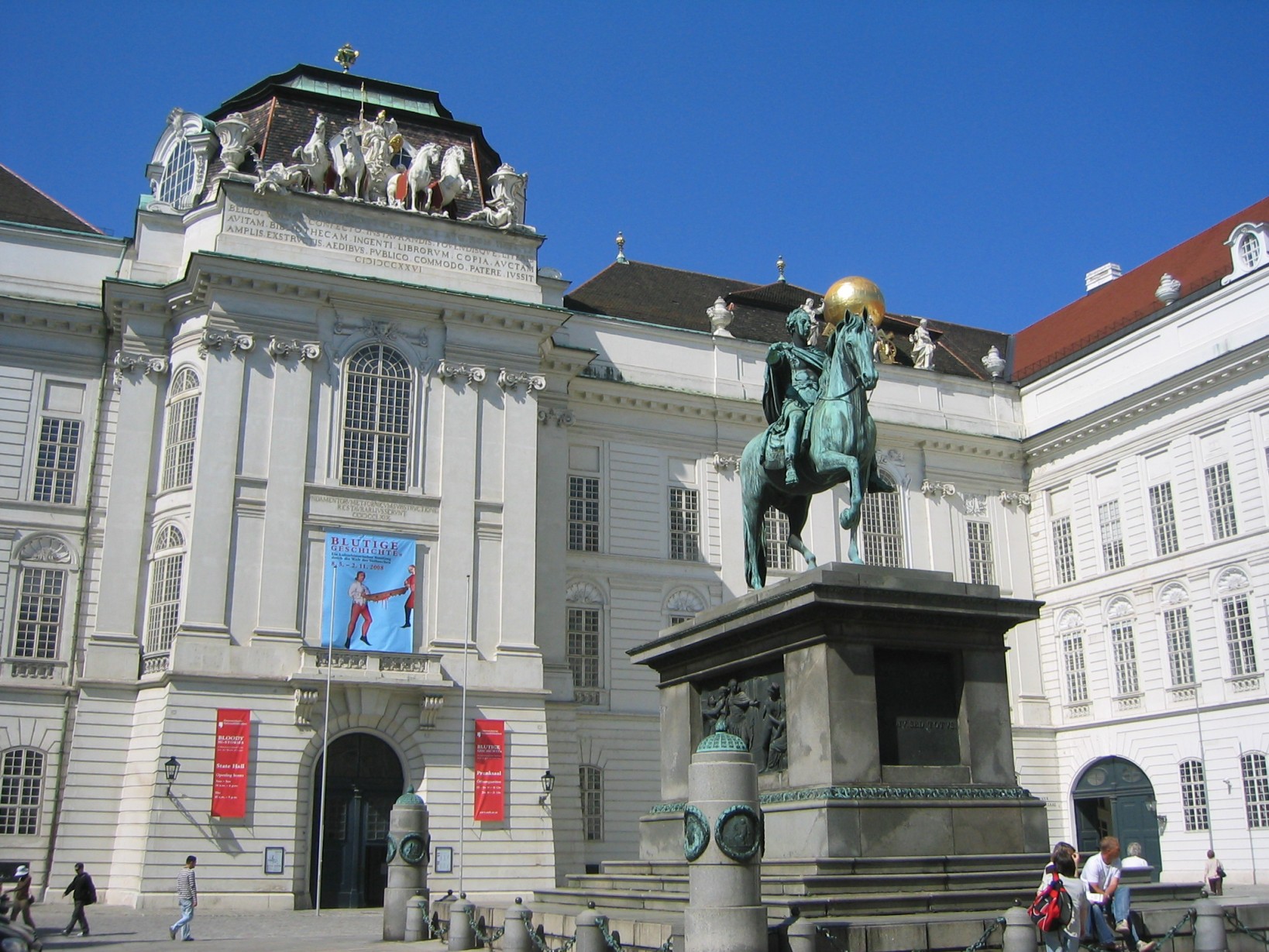|
Endlicher's Glossary
Endlicher's Glossary ( la, De nominibus Gallicis) is a glossary composed of eighteen lines of Gaulish words, mainly to do with regional placenames, translated into Latin. There are seven surviving copies of it, with the oldest dating to the 8th century. It is named after Stephan Endlicher who first described it in 1836. It is also known as the Vienna Glossary after the city where the first manuscript was discovered and is still held, in the Austrian National Library. See also * Lugdunum Lugdunum (also spelled Lugudunum, ; modern Lyon, France) was an important Roman city in Gaul, established on the current site of Lyon. The Roman city was founded in 43 BC by Lucius Munatius Plancus, but continued an existing Gallic settlem ... References Bibliography * * * * * * {{cite journal , last1=Stifter , first1=David , title=Old Celtic Languages: Gaulish , date=Spring 2012 , page=158 , url=https://rootsofeurope.ku.dk/kalender/arkiv_2012/celtic_spring/Gallisch_2_WS_2010 ... [...More Info...] [...Related Items...] OR: [Wikipedia] [Google] [Baidu] |
Endlicher's Glossary
Endlicher's Glossary ( la, De nominibus Gallicis) is a glossary composed of eighteen lines of Gaulish words, mainly to do with regional placenames, translated into Latin. There are seven surviving copies of it, with the oldest dating to the 8th century. It is named after Stephan Endlicher who first described it in 1836. It is also known as the Vienna Glossary after the city where the first manuscript was discovered and is still held, in the Austrian National Library. See also * Lugdunum Lugdunum (also spelled Lugudunum, ; modern Lyon, France) was an important Roman city in Gaul, established on the current site of Lyon. The Roman city was founded in 43 BC by Lucius Munatius Plancus, but continued an existing Gallic settlem ... References Bibliography * * * * * * {{cite journal , last1=Stifter , first1=David , title=Old Celtic Languages: Gaulish , date=Spring 2012 , page=158 , url=https://rootsofeurope.ku.dk/kalender/arkiv_2012/celtic_spring/Gallisch_2_WS_2010 ... [...More Info...] [...Related Items...] OR: [Wikipedia] [Google] [Baidu] |
Glossary
A glossary (from grc, γλῶσσα, ''glossa''; language, speech, wording) also known as a vocabulary or clavis, is an alphabetical list of Term (language), terms in a particular domain of knowledge with the definitions for those terms. Traditionally, a glossary appears at the end of a book and includes terms within that book that are either newly introduced, uncommon, or specialized. While glossaries are most commonly associated with non-fiction books, in some cases, fiction novels may come with a glossary for unfamiliar terms. A bilingual glossary is a list of terms in one language defined in a second language or Gloss (annotation), glossed by synonyms (or at least near-synonyms) in another language. In a general sense, a glossary contains explanations of concepts relevant to a certain field of study or action. In this sense, the term is related to the notion of ontology. Automatic methods have been also provided that transform a glossary into an ontology or a computational ... [...More Info...] [...Related Items...] OR: [Wikipedia] [Google] [Baidu] |
Gaulish Language
Gaulish was an ancient Celtic language spoken in parts of Continental Europe before and during the period of the Roman Empire. In the narrow sense, Gaulish was the language of the Celts of Gaul (now France, Luxembourg, Belgium, most of Switzerland, Northern Italy, as well as the parts of the Netherlands and Germany on the west bank of the Rhine). In a wider sense, it also comprises varieties of Celtic that were spoken across much of central Europe (" Noric"), parts of the Balkans, and Anatolia (" Galatian"), which are thought to have been closely related. The more divergent Lepontic of Northern Italy has also sometimes been subsumed under Gaulish. Together with Lepontic and the Celtiberian spoken in the Iberian Peninsula, Gaulish helps form the geographic group of Continental Celtic languages. The precise linguistic relationships among them, as well as between them and the modern Insular Celtic languages, are uncertain and a matter of ongoing debate because of their sparse at ... [...More Info...] [...Related Items...] OR: [Wikipedia] [Google] [Baidu] |
Latin
Latin (, or , ) is a classical language belonging to the Italic branch of the Indo-European languages. Latin was originally a dialect spoken in the lower Tiber area (then known as Latium) around present-day Rome, but through the power of the Roman Republic it became the dominant language in the Italian region and subsequently throughout the Roman Empire. Even after the fall of Western Rome, Latin remained the common language of international communication, science, scholarship and academia in Europe until well into the 18th century, when other regional vernaculars (including its own descendants, the Romance languages) supplanted it in common academic and political usage, and it eventually became a dead language in the modern linguistic definition. Latin is a highly inflected language, with three distinct genders (masculine, feminine, and neuter), six or seven noun cases (nominative, accusative, genitive, dative, ablative, and vocative), five declensions, four verb conjuga ... [...More Info...] [...Related Items...] OR: [Wikipedia] [Google] [Baidu] |
Stephan Endlicher
Stephan Ladislaus Endlicher also known as Endlicher István László (24 June 1804, Bratislava (Pozsony) – 28 March 1849, Vienna) was an Austrian botanist, numismatist and Sinologist. He was a director of the Botanical Garden of Vienna. Biography Endlicher studied theology and received minor orders. In 1828 he was appointed to the Austrian National Library to reorganize its manuscript collection. Concurrently he studied natural history, in particular botany, and East-Asian languages. In 1836, Endlicher was appointed keeper of the court cabinet of natural history, and in 1840 he became professor at the University of Vienna and director of its Botanical Garden A botanical garden or botanic gardenThe terms ''botanic'' and ''botanical'' and ''garden'' or ''gardens'' are used more-or-less interchangeably, although the word ''botanic'' is generally reserved for the earlier, more traditional gardens, an .... He wrote a comprehensive description of the plant kingdom accordin ... [...More Info...] [...Related Items...] OR: [Wikipedia] [Google] [Baidu] |
Vienna
en, Viennese , iso_code = AT-9 , registration_plate = W , postal_code_type = Postal code , postal_code = , timezone = CET , utc_offset = +1 , timezone_DST = CEST , utc_offset_DST = +2 , blank_name = Vehicle registration , blank_info = W , blank1_name = GDP , blank1_info = € 96.5 billion (2020) , blank2_name = GDP per capita , blank2_info = € 50,400 (2020) , blank_name_sec1 = HDI (2019) , blank_info_sec1 = 0.947 · 1st of 9 , blank3_name = Seats in the Federal Council , blank3_info = , blank_name_sec2 = GeoTLD , blank_info_sec2 = .wien , website = , footnotes = , image_blank_emblem = Wien logo.svg , blank_emblem_size = Vienna ( ; german: Wien ; ba ... [...More Info...] [...Related Items...] OR: [Wikipedia] [Google] [Baidu] |
Austrian National Library
The Austrian National Library (german: Österreichische Nationalbibliothek) is the largest library in Austria, with more than 12 million items in its various collections. The library is located in the Neue Burg Wing of the Hofburg in center of Vienna. Since 2005, some of the collections have been relocated within the Baroque structure of the Palais Mollard-Clary. Founded by the Habsburgs, the library was originally called the Imperial Court Library (german: Kaiserliche Hofbibliothek); the change to the current name occurred in 1920, following the end of the Habsburg Monarchy and the proclamation of the Austrian Republic. The library complex includes four museums, as well as multiple special collections and archives. Middle Ages The institution has its origin in the imperial library of the Middle Ages. During the Medieval period, the Austrian Duke Albert III (1349–1395) moved the books of the Viennese vaults into a library. Albert also arranged for important works from La ... [...More Info...] [...Related Items...] OR: [Wikipedia] [Google] [Baidu] |
Lugdunum
Lugdunum (also spelled Lugudunum, ; modern Lyon, France) was an important Roman city in Gaul, established on the current site of Lyon. The Roman city was founded in 43 BC by Lucius Munatius Plancus, but continued an existing Gallic settlement with a likely population of several thousands. It served as the capital of the Roman province of Gallia Lugdunensis and was an important city in the western half of the Roman Empire for centuries. Two emperors, Claudius and Caracalla, were born in Lugdunum. In the period 69–192 AD, the city's population may have numbered 50,000 to 100,000, and possibly up to 200,000 inhabitants. The original Roman city was situated west of the confluence of the Rhône and Saône, on the Fourvière heights. By the late centuries of the empire much of the population was located in the Saône River valley at the foot of Fourvière. Name The Roman city was founded as ''Colonia Copia Felix Munatia'', a name invoking prosperity and the blessing of t ... [...More Info...] [...Related Items...] OR: [Wikipedia] [Google] [Baidu] |
8th-century Manuscripts
The 8th century is the period from 701 ( DCCI) through 800 ( DCCC) in accordance with the Julian Calendar. The coast of North Africa and the Iberian Peninsula quickly came under Islamic Arab domination. The westward expansion of the Umayyad Empire was famously halted at the siege of Constantinople by the Byzantine Empire and the Battle of Tours by the Franks. The tide of Arab conquest came to an end in the middle of the 8th century.Roberts, J., ''History of the World'', Penguin, 1994. In Europe, late in the century, the Vikings, seafaring peoples from Scandinavia, begin raiding the coasts of Europe and the Mediterranean, and go on to found several important kingdoms. In Asia, the Pala Empire is founded in Bengal. The Tang dynasty reaches its pinnacle under Chinese Emperor Xuanzong. The Nara period begins in Japan. Events * Estimated century in which the poem Beowulf is composed. * Classical Maya civilization begins to decline. * The Kombumerri burial grounds are founded. * ... [...More Info...] [...Related Items...] OR: [Wikipedia] [Google] [Baidu] |





